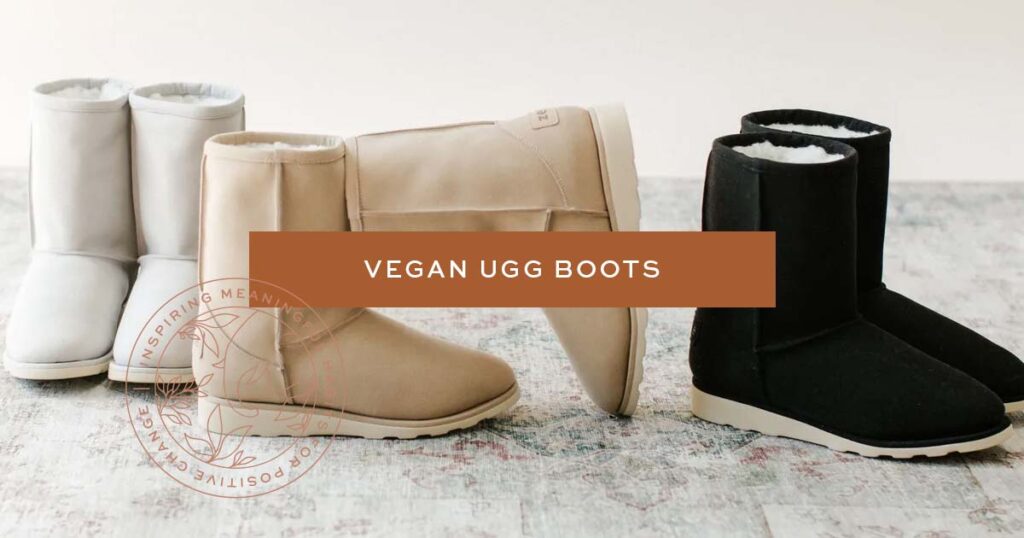When it comes to footwear, few products incite as much controversy as UGG boots. These beloved winter staples are often associated with luxury, warmth, and comfort. However, they are also synonymous with animal welfare concerns, as traditional UGGs are made from sheepskin and wool. This article delves into the moral implications of wearing UGG boots and investigates alternatives that prioritize both style and animal ethics.
To understand the debate surrounding UGG boots, it is crucial to first unravel the origins of the brand. UGGs, originally an Australian term for sheepskin boots, have evolved into a global fashion phenomenon. Their soft, fluffy lining has been marketed as essential for warmth during the colder months. Despite their undeniable comfort, the product’s reliance on animal-derived materials raises significant ethical questions. Are UGGs compatible with a cruelty-free lifestyle, or do they represent a fashion faux pas?
The primary concern regarding traditional UGG boots lies in the sourcing of their materials. The production of sheepskin is often associated with practices that can be detrimental to animal welfare. From the herding of sheep to the slaughter process, there are many stages where cruelty may occur. Reports and investigations into the sheepskin industry have illuminated several practices that can be classified as inhumane, including practices related to lambing, transportation, and the slaughtering process itself. Consequently, the production line of UGG boots has become a focal point for animal rights advocates.
However, the UGG brand has made attempts to address these concerns. They have initiated programs that advocate for ethical sourcing and sustainability. These measures include certifications for farms that adhere to humane practices. This proactive approach is commendable and offers some reassurance for consumers looking to make more ethically informed choices. Nevertheless, skepticism persists. Are these initiatives enough to mitigate the ethical implications of wearing UGGs?
In stark contrast to the traditional UGGs, there are now a plethora of vegan and cruelty-free alternatives that promise the same level of comfort without compromising ethical standards. Brands such as TOMS, NATIVE, and Dr. Martens have developed lines of footwear that utilize synthetic materials, ensuring that no animal is harmed in the production process. Such innovations illustrate the growing demand for sustainable fashion options that respect animal rights. These alternatives not only provide comfort but often offer additional benefits such as waterproofing and increased durability.
Moreover, the rise of vegan footwear reflects a larger shift within the fashion industry as a whole. Ethical consumerism is on the rise, where buyers increasingly seek to align their purchases with their values. The popularity of vegan substitutes for leather, fur, and other animal-derived materials signifies a trend that many brands are beginning to recognize and adopt. This inclusive shift toward cruelty-free products represents a significant milestone for the fashion industry, as it confronts the longstanding ethos of style versus ethics.
Aside from ethical considerations, there are abundant practical reasons to consider alternatives to traditional UGGs. For instance, vegan boots tend to be lighter than their sheepskin counterparts, offering a more versatile option for various weather conditions. Many cruelty-free brands employ advanced cushioning technology that ensures comfort without unnecessary weight. This advantage particularly benefits individuals who navigate brisk city streets or engage in outdoor activities during the winter months.
Environmental impact is another significant aspect worth discussing. The tanning process associated with leather and sheepskin production often utilizes harmful chemicals that can pollute the environment. Conversely, vegan materials frequently require less energy and fewer resources to produce, aligning with sustainable practices that can mitigate our carbon footprint. By prioritizing cruelty-free options, consumers contribute to a positive environmental impact, a cause that resonates deeply with today’s conscientious shoppers.
Despite the growing availability of ethical footwear options, there is still a certain allure to traditional UGGs. This appeal often stems from branding and cultural perceptions rather than comfort or ethical factors. UGGs have become a statement piece that conjures feelings of nostalgia and warmth. This emotional connection complicates the choice for many consumers, making them weigh their personal values against their fashion desires. It raises an important question: can we maintain a connection to our style aspirations while aspiring to a more ethical closet?
Furthermore, the dialogue surrounding UGGs versus their cruelty-free alternatives should not solely revolve around individual choices. It’s imperative to advocate for industry-wide reforms that resonate with humane practices. Supporting legislation that promotes animal welfare in fashion production is one avenue through which change can be enacted. Consumers, influencers, and companies alike must collaborate to propel the movement toward a more compassionate and ethical fashion landscape.
In conclusion, the question of whether UGGs are animal cruelty-free or a fashion faux pas is multi-faceted. While traditional UGGs do raise serious animal welfare concerns, the efforts for ethical sourcing hint at a potential pathway to more responsible consumption. At the same time, the emergence of stylish and comfortable vegan alternatives showcases an opportunity for conscientious consumers to blend style with ethical considerations. The future of fashion lies, undoubtedly, in our desire to make choices that honor our values, promoting a world where style does not have to come at the cost of suffering. Ultimately, consumers hold the power to reshape the industry by making informed choices that advocate for both personal style and compassion towards all living beings.








